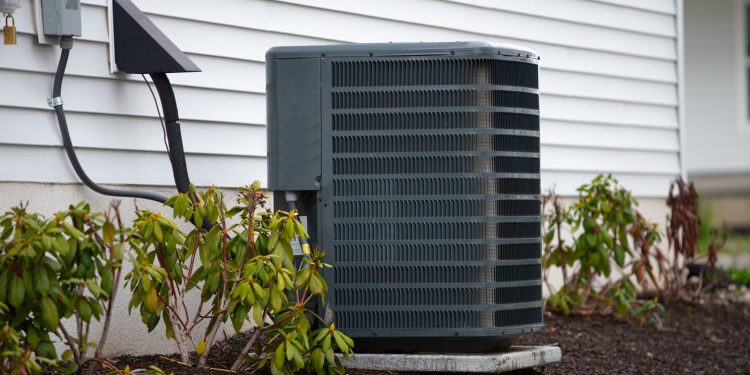In the summer there might be nothing more important than your AC unit keeping you cool, but for it to treat you well, it needs some basic care. While it may seem like your unit can handle anything, even on 100-degree days summer after summer, there are a few expert tips on exactly what you should not do to your central AC unit. Avoiding these moves will keep your AC working well, and prevent you from encountering costly repairs and issues right when you need it the most.
Here are the four things you should avoid doing to your central AC unit.
While you might feel like the ultimate DIYer, some projects should be left to the pros, and this is one of them. Traci Fournier, the vice president of operations at One Hour Heating & Air Conditioning cautions against this, saying, “ACs are intricate cooling systems with delicate parts that need to be handled carefully and with the proper tools. Should you try to DIY an AC problem and open the unit on your own, you might end up making a wrong move that could cost you hundreds of dollars.” Additionally, opening it yourself might void the system’s warranty, depending on the terms. Instead, a licensed and trusted AC expert should be the only one opening your unit.
Another common no-no Fournier sees people try is attempting to fix a refrigerant leak, the fluid that helps transfer heat and humidity out of your home, which can happen in the hotter months when the temperature spikes. “The AC’s refrigerant is under high pressure and the refrigerant lines will deteriorate over time due to this pressure. Refrigerant leaks also tend to happen when other issues are going on in your AC and it’s important to have an AC tech examine your entire system to catch other problems. If your system has a refrigerant leak, it will need to be professionally patched and recharged, which should be left to an expert.”
Presuming the choice depends on the level and size of your place but if you are looking for the best ways to manage your temperatures and get the cooling system, then a packaged air conditioner can be a better choice to opt for, to fit in with larger window movement and make it perfectly arranged. If you have a Carrier product, then you can have an online Carrier manuals download and get the manual you need.
Forgetting to change the filter
We get it — it’s the last thing on your mind. But changing the air filter is a must for safe and optimal efficiency with your AC unit. It can help to set a reminder in your calendar, or pair it with another task such as spring cleaning and back to school, depending on how frequently your unit needs a new filter.
“This is a year-round job. The air filter is designed to capture particulate matter from the indoor environment by forcing air through the filter,” Fournier says. “To be effective, the filter must be dense enough to collect very small items but not so dense to restrict airflow and potentially damage the AC. Different types of filters need to be changed at different intervals.”
To determine how long yours will last, check if you need a disposable filter (usually an inch in size), designed to last one month, or another type that can last three months — even those should be frequently checked because they can clog up early. Extended service filters that are 2 inches or greater can typically be changed out as needed. It all depends on the different factors of your home, such as the number of people, the season, pets, and how often you use it, shares Fournier.
“When the AC filter becomes clogged with dust, dirt, pet hair, and other particles, it reduces airflow to your system, forcing it to work harder. This puts a drag on your energy efficiency, which drives up your energy bills and also wears out AC components faster,” she adds. So it’s time to make it a priority, and you will literally breathe easier.
Setting the temperature too low
Sure, it’s hot out. But lowering the temperature too far will put excessive pressure on your unit. It also won’t necessarily cool your home any faster, despite popular belief, Fournier says.
The Air Conditioning Contractors of America’s standard is 75 degrees for cooling, which is typically comfortable for most people, shares Fournier. “Operating your system at lower temperatures will use more electricity and, in some cases, could cause the system to freeze up. If you have the desire to operate your system below this standard, you should consult a professional.”
Fournier recommends getting a smart or programmable thermostat to create a custom cooling schedule around your routine. This will save you energy without putting extra stress on your AC unit. You should also consider seeking other ways to cool down in the summer that won’t permanently impact your AC unit.
Neglecting annual maintenance
Just like your child’s yearly wellness checkup at the pediatrician or your dentist appointments, AC units need annual maintenance if you want them to last as long as they can. If not, your unit will eventually malfunction, leading to expensive repairs that could have been avoided through preventative maintenance. Your AC expert will clean dirty coils, unclog condensate drains, remove debris around the unit, and verify that system controls are working properly, among other tasks, Fournier says.
Source by www.thekitchn.com

